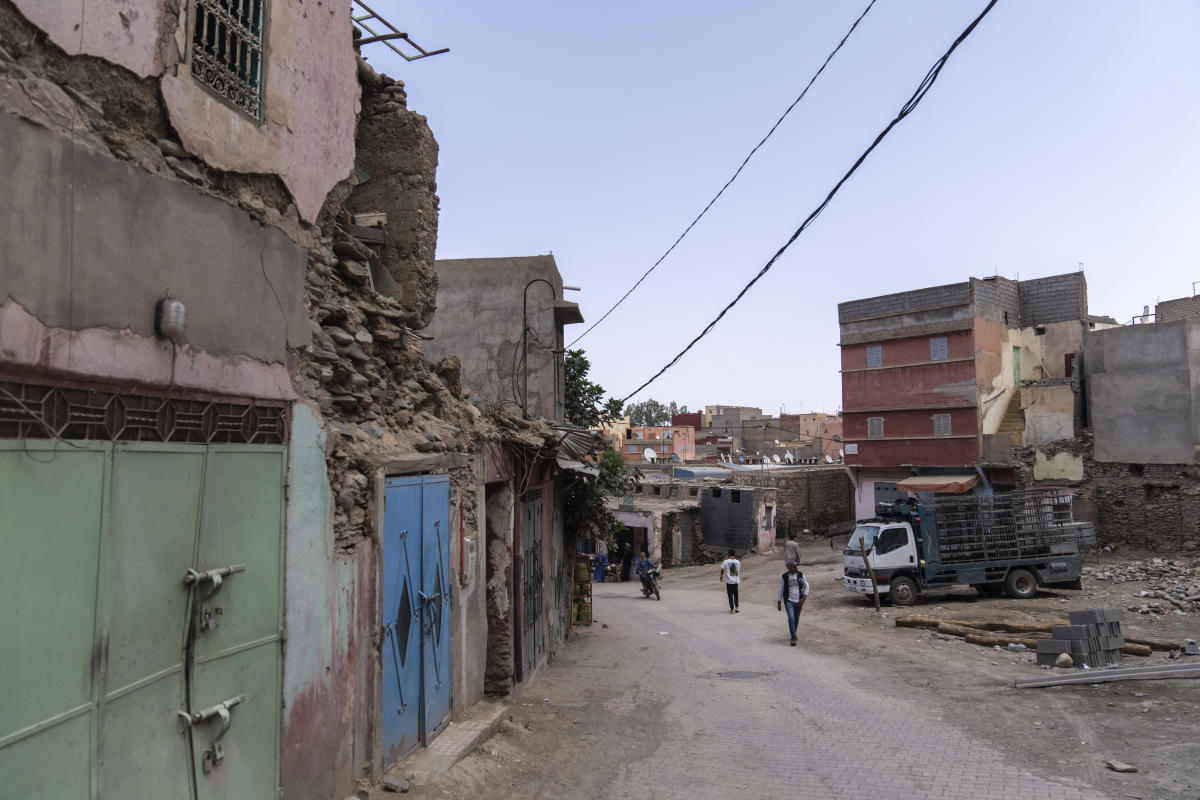
IMI N’TALA, Morocco (AP) — The rescue crews and bystanders are long gone but the remnants of homes still sit in piles off to the side of the jagged roads.
A year after nearly 3,000 people died when a record earthquake shook communities throughout Morocco’s High Atlas, it still looks like a bomb just went off in villages like Imi N’tala, where dozens of residents died when a chunk of mountainside cracked off and flattened the majority of buildings.
Broken bricks, bent rods of rebar and pieces of kitchen floors remain but have been swept into neater piles alongside plastic tents where the displaced now live. Some await funds to reconstruct their homes. Others await approval of their blueprints.
The region shook by the earthquake is full of impoverished agricultural villages like Imi N’tala accessible only via bumpy, unmaintained roads. Associated Press reporters revisited half a dozen of them last week ahead of the one-year anniversary.
In some places, residents awaiting governmental permission have begun reconstructing homes on an ad hoc basis. Elsewhere, people tired of the stuffiness of plastic tents have moved back into their cracked homes or decamped to larger cities, abandoning their old lives.
Streets have been neatly swept in towns like Amizmiz and Moulay Brahim, although cracked buildings and piles of rubble remain, much as they were in the days after the quake.
The rhythms of normal life have somewhat resumed in some of the province’s larger towns, where rebuilding efforts on roads, homes, schools and businesses are underway and some residents have been provided metal container homes. But the majority of those displaced from the 55,000 homes destroyed by the temblor remain vulnerable to summer’s heat and winter’s cold, living in plastic tents, impatient to return.
Mohamed Soumer, a 69-year-old retiree who lost his son in last year’s earthquake, is angry because local authorities have forbidden him from rebuilding his home on the same steep mountainside due to safety concerns. He now spends his days with his wife in a plastic tent near his now-rubbled home and fears moving elsewhere and restarting his life in a larger, more expensive area.
“Residents want to stay here because they have land where they grow vegetables to make a living,” he said. “If they go somewhere else and abandon this place, they will not be able to live there.”
The government said it would provide households monthly stipends in the aftermath of the earthquake and additional funds for seismically safe reconstruction. But its disbursal has been uneven, residents say, with many still waiting for funds or for reconstruction to commence.
Anger has mounted against local authorities in towns like Amizmiz and villages like Talat N’Yaqoub, where residents have protested against their living conditions. They have criticized the slow pace of reconstruction and demanded more investment in social services and infrastructure, which has long gone neglected in contrast with Morocco’s urban centers and coastline.
Officials have said rebuilding will cost 120 billion dirhams ($12 billion) and take about five years. The government has rebuilt some stretches of rural roads, health centers and schools but last week the commission tasked with reconstruction acknowledged the need to speed up some home rebuilding.
EMEA Tribune is not involved in this news article, it is taken from our partners and or from the News Agencies. Copyright and Credit go to the News Agencies, email news@emeatribune.com Follow our WhatsApp verified Channel





